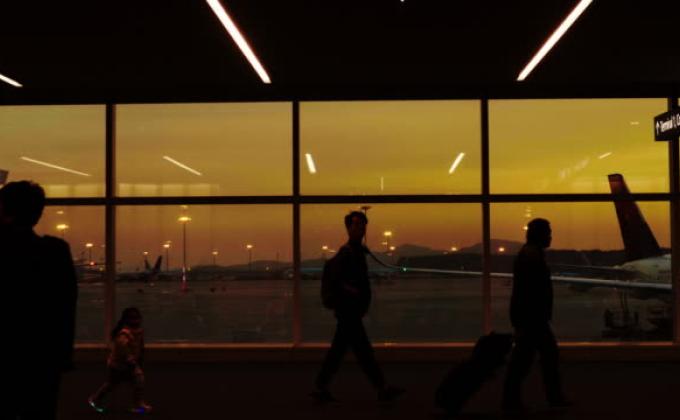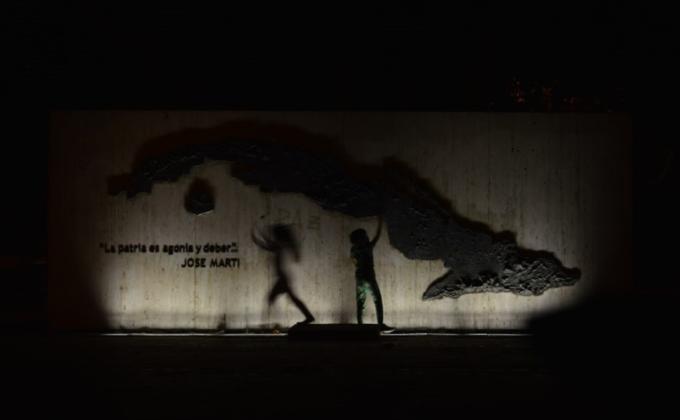To read this perspective in Dutch, click here.
Abstract: The Netherlands repatriated five women with ties to ISIS along with their eleven children from Al-Hol camp in North-eastern Syria. The five women are being brought back to the Netherlands to stand trial on terrorism charges after they had indicated to avail the right to be present in court personally. The Dutch government decided to repatriate the five women and their children after a court in Rotterdam rules last year it would terminate the proceedings and thus could no longer be prosecuted for terrorist offences.
On 4 February 2022, the Netherlands repatriated five women and their eleven children from the al-Hol camp in North-eastern Syria to ensure the women would be brought to justice. This decision does not come as a surprise because the Netherlands already repatriated another woman, Ilham B., with her three children in June 2021, after a Dutch court indicated they would terminate criminal proceedings against her due to her absence.
Nearly 300 persons with jihadi intentions have travelled to Syria and Iraq from the Netherlands, one-third of which are women. The vast majority of these persons have joined the Islamic State (ISIS). So far, 65 adults and 30 children have returned to the Netherlands, mainly on their own in 2013 and 2014. Additionally 20 adults, as well as 45 children, have returned to a third country, for example that of the parents’ foreign nationality and could potentially return or be extradited to the Netherlands.
This perspective explains briefly why the five women and their children are returning to the Netherlands, how the relevant Dutch legal proceedings work, and what will happen to these women and their children upon return to Dutch soil. Finally, the perspective will reflect on whether more repatriations can be expected, as well as whether the approach to repatriation in the Netherlands is changing.
Proceedings before the Dutch courts
Although it is not yet officially confirmed, it is most likely that Amber K. (two children), Hafida H. (three children), Nawal H. (four children), Meryem S. (two children) and Naima, (mother of Meryem S.) are the females that have been repatriated, as these women were mentioned in the court ruling which would terminate their criminal proceedings. Three of the women are included in the National Sanction List on Terrorism, and their financial assets are frozen as a result.
To understand why the current women are being repatriated, it is important to look at the case of Ilham B. in more detail. In March 2016, Dutch Prosecutors issued an (international) arrest warrant against Ilham B. who was, at that time, in the Ain Issa camp in Northeastern Syria. In 2018, the court in Rotterdam decided to stay the proceedings - thus postponing - indefinitely and issued a warrant to apprehend and extradite her. The decision constitutes an obligation on the Dutch Government to make genuine efforts to bring the suspect to the Netherlands, by requiring the Ministry of Justice to engage with the Autonomous Administration of North and East Syria (AANES) and the Dutch consulate in Erbil, Iraq, to facilitate the arrest and extradition of the accused to the Netherlands where she could stand trial.
Ilham B., and the five women are being tried in absentia, which is permitted in the Netherlands under certain conditions, such as informing the accused when the trial will be held and right to be represented at trial by a defense counsel.
A cornerstone of the right to a fair trial is the right to be present and to be able to defend oneself in person, as enshrined in article 14(3)(d) of the International Covenant on Civil and Political Rights. In the Netherlands, the right to be present at trial is guaranteed in article 278 section 3 of the Criminal Procedure Code. By being present at court, the accused is generally in a better position to effectively defend him- or herself, examine the witnesses, and to have the free assistance of an interpreter, if needed.
Trials in absentia are problematic from a rule of law perspective, but they are not prohibited and are very common amongst the members of the Council of Europe according to a survey conducted by the European Committee on Crime Problems of the Council of Europe. Other concerns with trials in absentia relate to legal presentation and the right of retrial and/or right to appeal. Considering the impact such trials have on the right to be present and defend oneself, these should only be permitted in exceptional cases.
If a trial is to be pursued in absentia however, the prosecutor has a formal duty to notify the suspect of the start of the trial. The court will check whether this duty has been observed at the start of proceedings. This notification traditionally means sending a letter to the last known address in the Netherlands, but notification can also take place through posting a message on social media, for example Facebook or Twitter. The notification can trigger the accused to avail his or her right to be present at trial, in which case the court will stay the proceedings to allow the accused to attend the proceedings. The court may also come to the conclusion that the presence of the accused is required in the interest of justice, at which point the court could choose to summon the accused.
A few MPs in the Netherlands have suggested to specifically allow the women in the camps to attend their trial through video conferencing. According to article 131a of the Criminal Procedure Code, hearing and questioning of witnesses, including suspects, is permitted through video conferencing. Whilst videoconferencing is permitted, however, the suspect needs to be consulted. The major benefit of being present in court and allowing the accused to effectively defend him- or herself and communicate confidentially with counsel should be taken into account when considering video conferencing. Some other relevant factors include the quality of the equipment, and the need of a mutual legal assistance agreement when the accused in abroad. The legal and logistical complications are even more amplified in the context of the women in the al-Hol camp, according to the former Minister of Justice and Security. However, he also indicated that it is ultimately up to the court to determine whether video conferencing would be acceptable in this specific situation. The AANES is not recognised as a state, and thus is not capable of concluding an international agreement. Further, supplying the camps with specialised video equipment could pose a security risk.
The principle of legal certainty in the context of proceedings, means that an accused is entitled to have clarity on whether a prosecution will be pursued. The principle also ensures a certain stability in legal proceedings and contributes to the performative function of justice. In the Netherlands, under article 29f of the Criminal Procedure Code, the accused can request that the court terminate criminal proceedings. Such a termination can only be considered when a prosecution has actually been initiated, for example when an arrest warrant has been issued and before the proceedings have commenced in court. The right to have a decision by the court within a reasonable time is not considered to be a decisive factor to terminate a case, but proceedings could be terminated if none, or only minimal steps have been taken to pursue the criminal proceedings.
Once proceedings are terminated in the Netherlands, the accused is notified that the prosecution will no longer be pursued. This means that the prosecutor could not try the person for the same offences again in accordance with the ne bis in idem principle. In the Netherlands this also applies when prosecution is no longer pursued or terminated. Only if new facts come to light after the decision to terminate a case, may the person be prosecuted for the same offences. Furthermore, victims can, as a directly interested party, file a written complaint with the Court of Appeal against a terminated prosecution, but this has not yet happened. Another consequence of terminating the proceedings is that it would no longer be possible to impose supervision under the Long-Term Supervision Act. Under this Act and as part of prison sentence, a court could impose measures with the aim to change behaviour or limit a person’s freedom, for example by imposing a duty to report to the police daily. In France, a similar procedure is available for the suspect to request the court to terminate the proceedings, and would bar the prosecutor from issuing a charge for the same offences. Unlike in Belgium, where several women already have been convicted in absentia, the accused can file an appeal against the verdict, in which case a retrial will take place before the same court. In the United Kingdom, like in other common law countries, both the prosecutor and the accused can seek for a nolle prosequi, a declaration of unwillingness, to pursue continued prosecution. This would lead to an adjournment of the case but not an acquittal, and would not bar prosecutorial proceedings in the future. Considering the legal implications of a termination of a case, the closing of a case should be considered with great caution.
Back to Ilham B. In February 2020 the court in Rotterdam came to the conclusion that staying the proceedings was no longer viable. The decision was made that proceedings would be terminated in three months based on the prolonged duration of the proceedings and lack of concrete progress in returning the suspect to the Netherlands to stand trial. Despite the efforts taken by the Prosecutor, the court concluded that the Minister of Justice and Security clearly had an interest to protect national security and also ensure accountability, but not necessarily before a national court. However, three months later, in June 2020, the court has been informed that the Minister of Justice and Security now does wish to pursue prosecution in a Dutch court, and therefore decided to stay the proceedings for six months to allow the authorities to take concrete steps to repatriate Ilham B. This lead to repatriation of Ilham B. in the summer of 2021.
A few months later, on 11 October 2021, the court in Rotterdam concluded that it would no longer stay the proceedings of five other women who are in the camps in North-eastern Syria. The reason for this is that the the court expected that the women would be repatriated to the Netherlands to stand trial, or alternatively that the government would give a concrete commitment as to when repatriation will be possible. The Netherlands repatriated the five women and eleven children in the first week of February 2022.
What will happen to the women and their children?
Despite the fact that this may only be the second time that the Netherlands has actively repatriated women and children from Syria, this does not mean that the relevant authorities are not prepared for their arrival. For each of the known women and their children in the camps a detailed plan is in place. Upon arrival the mothers and children will be separated and the mothers will be detained and transferred to the terrorism detention facility for women in Zwolle, NL. The municipality where the child will live/originates from takes the lead in developing an individual return plan with the support of the Raad voor de Kinderbescherming (RvdK, Dutch Child Protection Board) and Jeugdbescherming (Youth Care). The plan is subsequently also shared with the local youth care professionals. Each return plan consists of four pillars: custody, security risk, care, and education.
Considering the prolonged duration of the children's stay in the camps, it is now common practice in nearly all cases that children are placed in a specialised youth care facility for a 3-month term of observation. During this period, an assessment will be made of the needs of the child including their risks and protective factors. This is also the time when the potential school is informed.
For each child returnee, regardless of their age, the RvdK requests to the juvenile court that they be placed under supervision pursuant to Section 1:255 of the Dutch Civil Code and for an authorisation for custodial placement pursuant to Section 1:265b of the Dutch Civil Code. The reason for custodial placement is that upon arrival, the parent will be arrested and the child will need to be placed in custody. When doing so, the child can be placed either with their extended family, a foster family, or in a certified institution. If the child is placed with a foster family, the family needs to be provided with sufficient guidance on how to recognise traumas of the child and monitor signs that are detrimental to the development of the child. If it is in the best interest of the child, supervised visits between biological parent and child will be possible, irrespective of whether the child has been placed under supervision or placed in custody. Prior to the return of all child returnees, all the extended families are screened by the RvdK to assess their suitability. Factors that are taken into consideration include pedagogical safe environment, age of the child and the extended family members, violent extremist ideologies among the extended family members, ability to deal with the media, and trust in the care and support institutions. According to the RvdK, a vast majority of the families of the 135 children were considered suitable.
A turning point in policy?
Approximately 120 adults and 200 children who either have at least one parent with Dutch nationality, or parents who have lived for a considerable time in the Netherlands, are still detained in Syria. Out of those still in Syria, 40 adults and 70 children are being held in camps held by the AANES, 25 adults and 70 children are believed to be with terrorist groups in North-western Syria, 35 adults and 30 children are elsewhere in Syria. At present, an additional 25 children have lost their lives due to security risks, illness and lack of medical care.
The Netherlands is not the only country that does not actively repatriate their nationals from Syria and Iraq. Several European countries have been challenged in court to repatriate the women and their children for some time now. The European Court on Human Rights is expected to rule in the cases of H.F. and M.F. v. France and J.D. and A.D. v. France which will have an impact on the policy of European countries towards the repatriation of their nationals held in camps in North-eastern Syria.
However, countries like Kosovo, Kazakhstan and Russia have been actively repatriating women and children affiliated with IS back home. More recently other European countries have (implicitly) changed their policy towards repatriation of all or some of the women and children in the camps in North-eastern Syria. In December 2019, Finland publicly announced that they would repatriate all the Finnish women and children from the camps in Syria. Also, in Belgium, the policy towards the repatriation of its children specifically changed in early 2021 with the government deciding that all children below 12 years old should be repatriated. In May 2019, a grandfather in Sweden managed to get the support from the Swedish authorities to repatriate seven of his grandchildren. As of autumn 2021, Sweden has been actively repatriating three families at a time from North-eastern Syria. So far eight women and eighteen children have been repatriated to Sweden by January 2022. Other countries that are stepping up their efforts in repatriation include Denmark and Germany bringing back together 48 mothers and children.
On 15 December 2021, a coalition agreement was presented to the Dutch Parliament, which serves as a roadmap for the new government. In this agreement the approach regarding individuals who travelled to the conflict zone remains unchanged. This means that the Netherlands will only consider repatriation on a case-by-case basis. Yet, during the weekly briefing by the Prime Minister, Mark Rutte for the first time stated that his personal views are changing. He felt that if the women would not be prosecuted and eventually return, they would pose a bigger risk to society than repatriating them to the Netherlands.
Further, in the Netherlands like many other civil law countries there is no formal legal precedent, therefore courts are not bound by the decisions of previous courts. This does not mean that a judge would not take the ruling of a judge in a similar case into consideration. The situation in the Netherlands is quite unique, where a termination of legal proceedings is final and a person cannot be prosecuted again for the same offences. So far at least eight women have requested the court to terminate the proceedings, it is very likely the court will reach a similar decision as in the current case of the five women and of Ilham B.
As has been repeatedly stated before, repatriation of the women and children is from a moral, legal and security perspective, the only way forward. Considering the attempted prison escape by ISIS in January 2022 and deteriorating situation in the camps and the fact that already fifteen Dutch women have escaped, the need to repatriate is only becoming more urgent. As many more women have requested their cases to be closed, it is time to change the policy in the Netherlands regarding repatriation, for the inevitable alternative is that the courts will decide to terminate their criminal proceedings. The relevant authorities in the Netherlands, ranging from the Prosecutor’s Office to the Council of Child Protection Board, intelligence services to the municipalities, are well prepared to deal with the women and children. The Netherlands should have faith in the relevant authorities to handle the prosecutions, where appropriate, and rehabilitation and reintegration of these women and their children back into society.
Photocredit: Wikifrits/Wiki Commons








